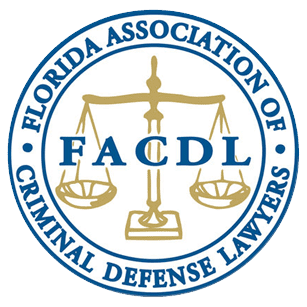Whether it involves hacking into a personal device or selling trade secrets, internet crimes have the potential to cause immense devastation. With computers being the main tools for storing documentation in current times, accessing digital information only requires the internet and very specific technical skills. The Florida Computer Crimes Act identifies two types of computer crimes: offenses involving intellectual property and those that affect computer users.
If you have been charged with an Internet crime, call a Sarasota criminal defense lawyer with Erika Valcarcel, Criminal Defense Lawyer, P.A. at (941) 363-7900. We will ensure that you are not taken advantage of in court.
Intellectual Property
Intellectual property is anything that can be patented, trademarked, or copyrighted. This type of property is the result of creativity. It may be the design for a building or the recipe for a world-famous ice cream. In the modern age, all of this information is stored on computers. When a computer is connected to the internet, its contents can be stolen, modified, or even destroyed.
Computer crimes that negatively affect intellectual property include, but are not limited to:
- Stealing data, software, or any privately-owned information and either selling it or making it public. This crime can be committed with or without the help of the internet.
- Infecting a computer or any other electronic device with a virus. When malware is planted, it often modifies or destroys data that was previously being stored.
- Destroying data, such as trade secrets, using anything but malware. This might involve physically destroying a device or using login information to delete data from the cloud.
- Providing a third party with access to confidential information being stored on a computer. Allowing anyone to gain unauthorized computer privileges is considered a crime.
Disruption of Computer Use
Many internet crimes do not involve the intent to obtain or steal proprietary information. Instead, some people take pleasure in disrupting the lives of ordinary computer users. For example, a hacker might access a company’s network and make it impossible for inter-device communication, or introduce malware that disables a computer’s ability to access the internet.
According to state law, computer crimes that mainly affect users are listed below:
- Destroying or damaging a personal computing device, such as a computer, a laptop, or a tablet. This also includes hardware that is used with computers, such as network wiring.
- Unauthorized access to a computer through a virus or another type of malware.
- Disrupting a computer’s ability to send information to another device, whether through the internet or through a local computer network.
- Spying on an individual by taking control of a device’s webcam. This crime often involves unauthorized audio or video surveillance.
- Introducing malware or unsolicited applications onto a computer or electronic device. This is a crime even if the user is not negatively affected in any way.
What Can Be Used as Evidence?
Since the dawn of internet crime, law enforcement agencies, such as the Federal Bureau of Investigation (FBI), have been using computers to stop people in their tracks. When investigating a computer crime, officers collect digital evidence to support their claims. This evidence can be defined as any information that is found on an electronic device, such as computers, cameras, phones, CDs, memory cards, and flash drives. For example, police might find evidence of child pornography by accessing a person’s hard drive, or discover stolen information when browsing through a person’s emails.
How Erika Valcarcel, Criminal Defense Lawyer, P.A. Can Help
If you have been falsely or unfairly accused of an Internet crime, contact a Sarasota criminal defense lawyer at Erika Valcarcel, Criminal Defense Lawyer, P.A.. In addition to guiding you through the process, we can help you craft a legal defense that can get your charges eliminated or reduced.
Call (941) 363-7900 now to find out how you can avoid spending time behind bars.
View All Blogs

